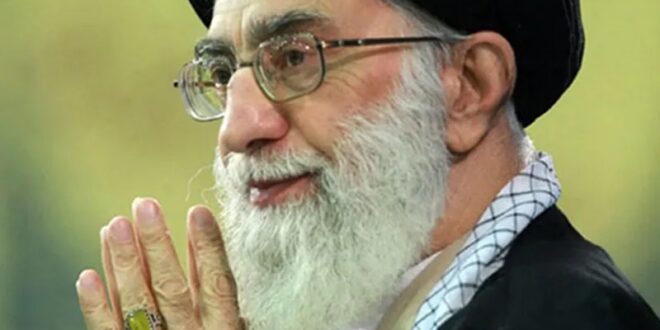Iran’s theocratic regime has been opposed to monarchies and dynasties since it overthrew the Shah in 1979. Now there are hints that its aging Supreme Leader Ali Khamenei may be thinking of throwing power to one of his sons.
Mir-hossein Mousavi who served as Iran’s prime minister until the position was abolished in 1989. He was opposed by Khamenei and later put under house arrest, where he still remains.
Mousavi, 80, recently piqued interest when a website, Zietun, reprinted his words from a 1988 book, in which he asked, “Have the 2,500-year-old royal dynasties returned so that a son could rule after his father?”
The name of Mojtaba Khamenei, the supreme leader’s second-eldest son, is not mentioned in the lines of Mousavi’s handwriting on the Zeitun website. But the former prime minister’s words are clear, and, referring to a reproach speech by the founder of the Islamic Republic on the “imperials,” he added: “The news of this conspiracy has been heard for 13 years. If they don’t really look for it, why don’t they once deny such an intention?”
It is said in Tehran circles that Khamenei abandoned his closest allies with his de-facto selection of Ebrahim Raisi, who was involved in the massacre of political prisoners in 1988. Khamenei is believed to have chosen Raisi as someone who would suppress uprisings while being obedient to the supreme leader’s wishes to have free rein in nuclear issues.
But there could be another reason, which is that Khamenei’s son, Mojtaba, age 53, could become a crown prince after his death.
Khamenei has only one red line, and that is to sustain the Islamic regime at all costs, even if it is inherited and continues in his family after his death.
The intransigent, self-serving nature of the Iranian regime was recently shown elsewhere with the attempted assassination of author Sir Salman Rushdie in New York on Aug. 12.
In 1988, Ayatollah Ruhollah Khomeini issued an apostasy fatwa against Mr. Rushdie for his novel, “The Satanic Verses.” In 1993, Khamenei upheld the fatwa, which now carries a $3 million bounty for the author’s death. “Indeed, his [death] sentence must be implemented, and it will be,” Khamenei said.
After the Aug. 12 attack, the Iranian Resistance issued a statement that “strongly condemns” both the attack on Sir Rushdie and the fatwa.
Regarding Iran’s future, it is very naïve to imagine that Khamenei will accept a nuclear deal that undermines his ambitions. Khamenei has long wanted nuclear power to ensure his brutal regime’s survival and will try to obtain it at the cost of unprecedented poverty of the Iranian people and the global isolation of the civilized country of Iran.
Therefore, since 2002—after the regime’s two nuclear sites were revealed at a US press conference by the National Council of Resistance of Iran—Khamenei has tried in various ways to hide all his sites and refuse a deal.
In response, the international community has been struggling to determine the range and secret funding of the regime’s nuclear program.
On the one hand, the mullahs resorted to all sorts of deceptions, so they could secretly advance the their sinister project and obtain the atomic bomb. But, on the other hand, the Iranian resistance and other international institutions have continued to expose the regime’s sites and activities that have a military dimension.
Meanwhile, the International Atomic Energy Agency seeks details about Iran’s nuclear military ambitions, but faces obstruction, deception, and lack of accountability on the part of the mullahs.
In many cases, the regime has clearly destroyed evidence and cleaned up places and projects to remove traces of its activities.
The mullahs’ regime will not abandon the project of obtaining a nuclear bomb. And if today we sometimes see that the regime goes to the negotiating table, it is to reduce global pressure and to buy time to reach the tipping point.
Determination must be shown to prevent a fundamentalist and terrorist dictatorship from acquiring nuclear weapons. To this end, UN Security Council resolutions must be revived, and comprehensive sanctions must be applied against the regime. Negotiating appeasements with this regime undermines global peace and security.
Aren’t thousands of Syrian children, the people of Iraq and Yemen, and currently the people of Ukraine, paying the price for the absence of a decisive policy towards this fundamentalist regime?
 Eurasia Press & News
Eurasia Press & News



